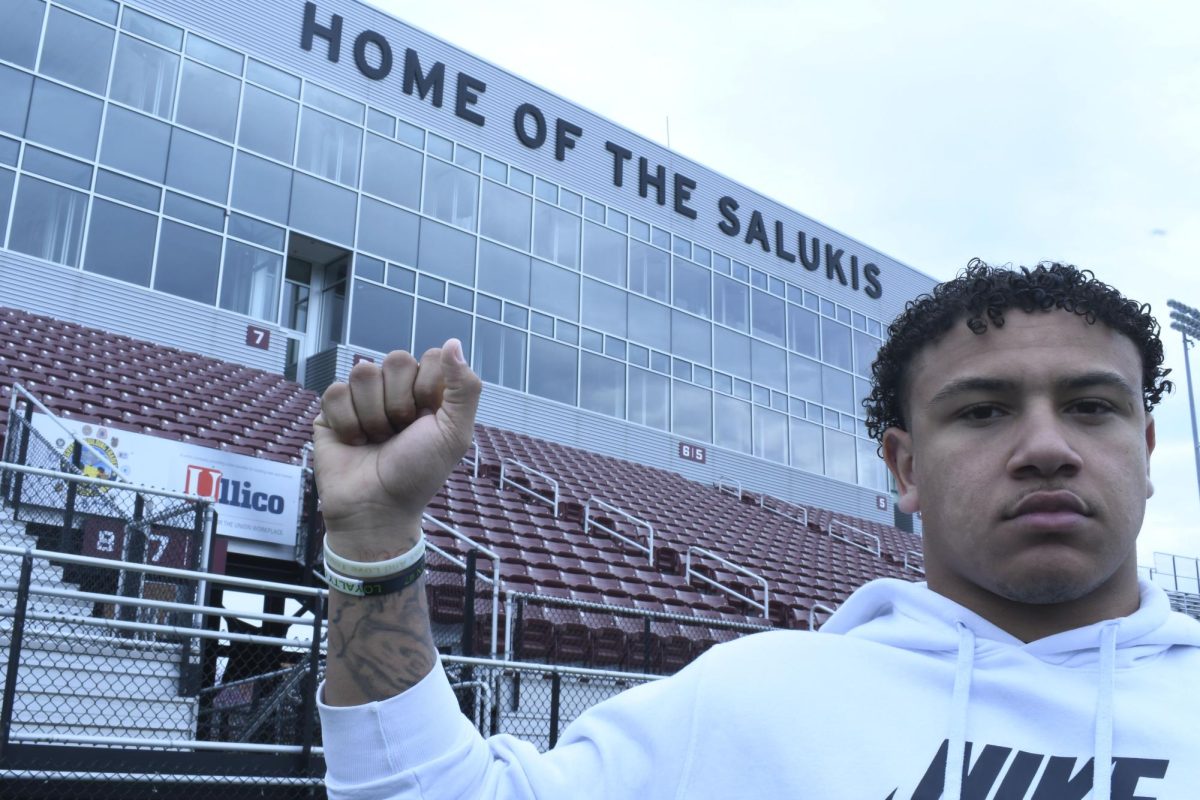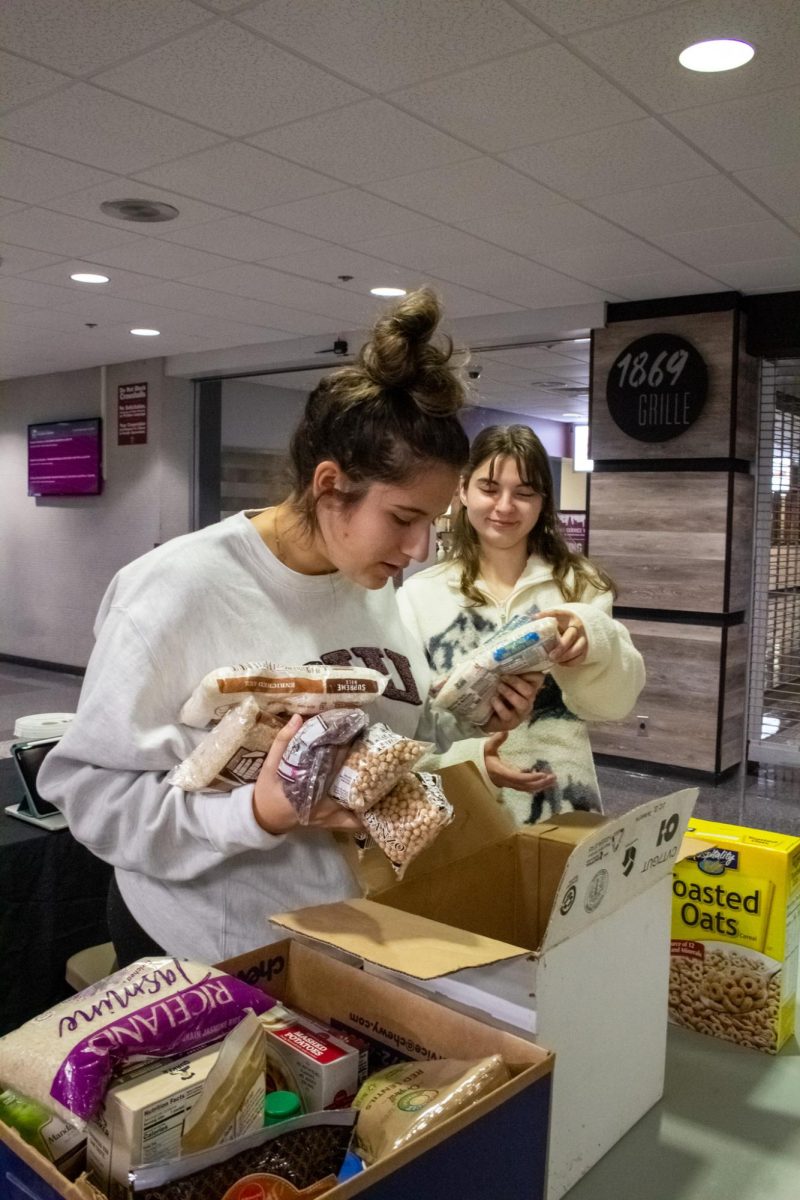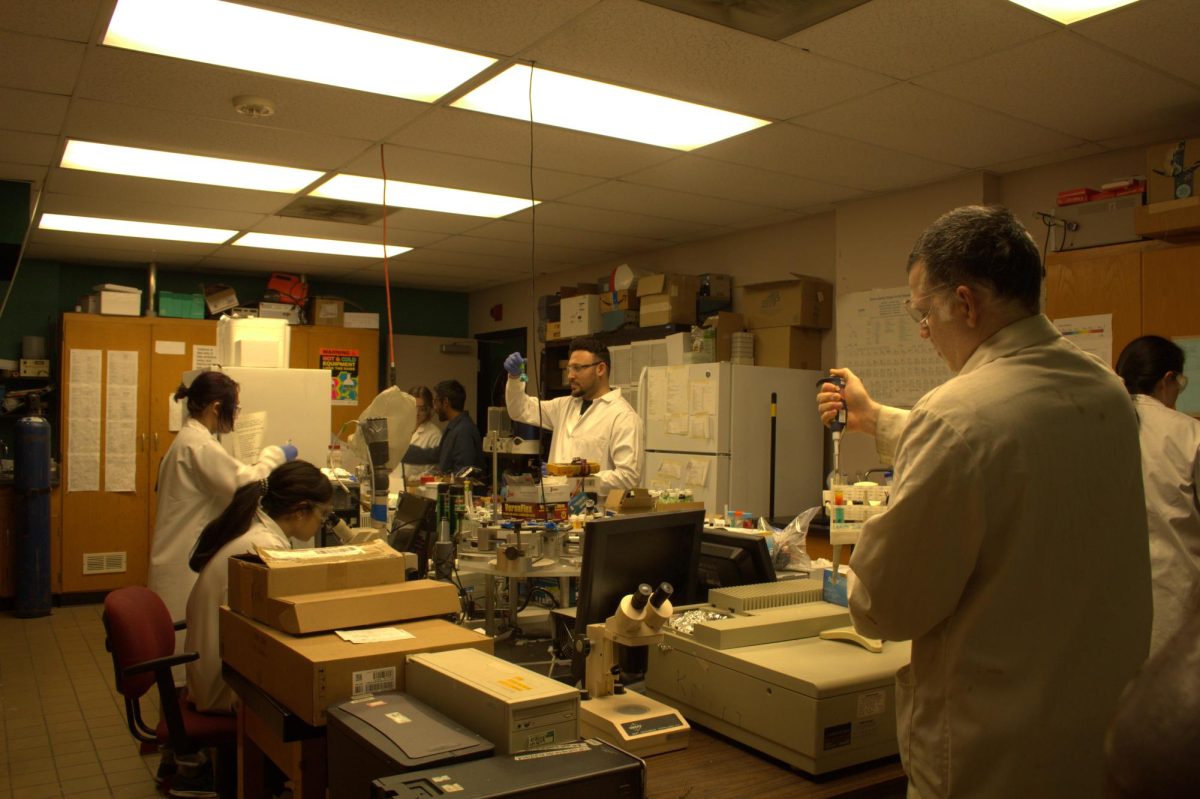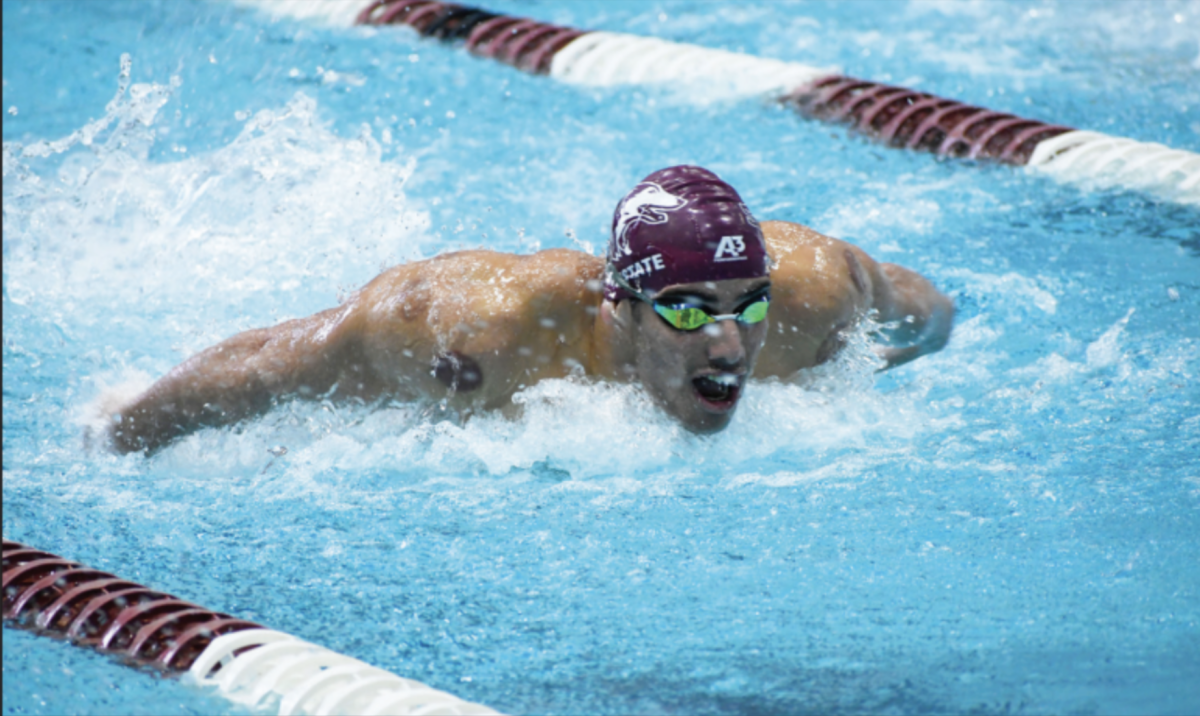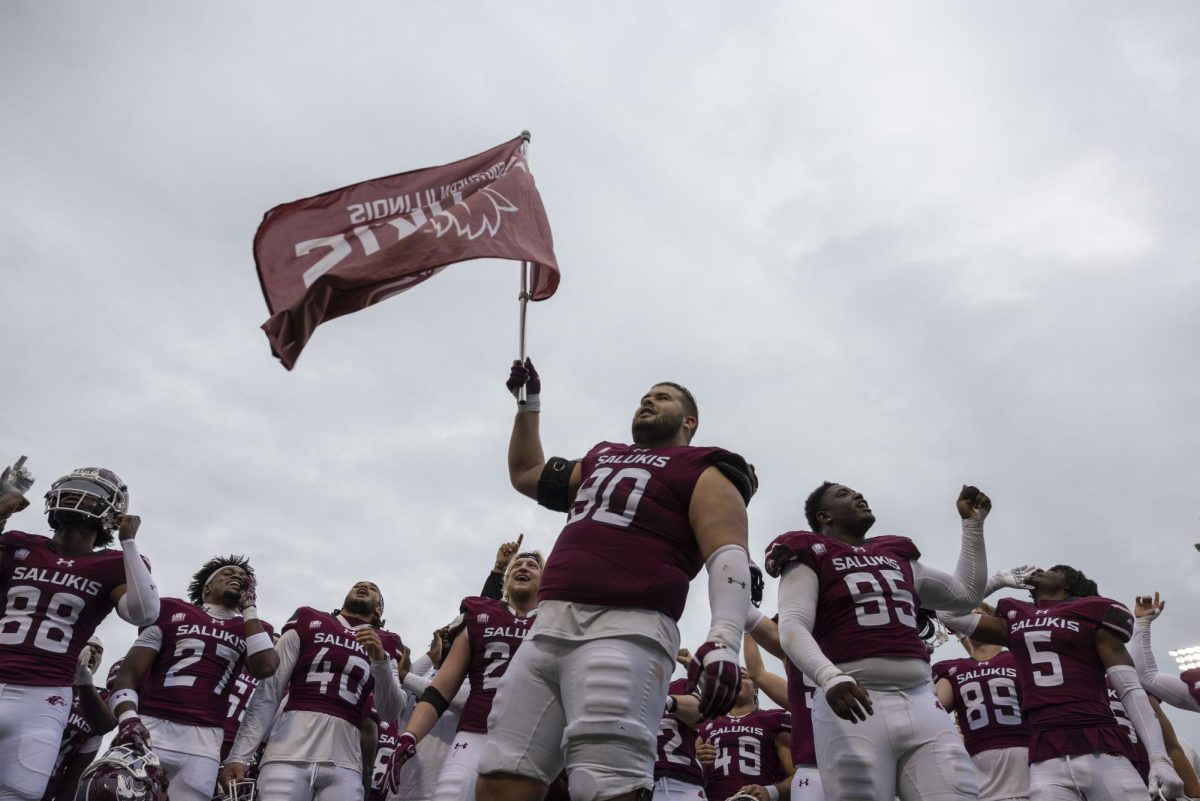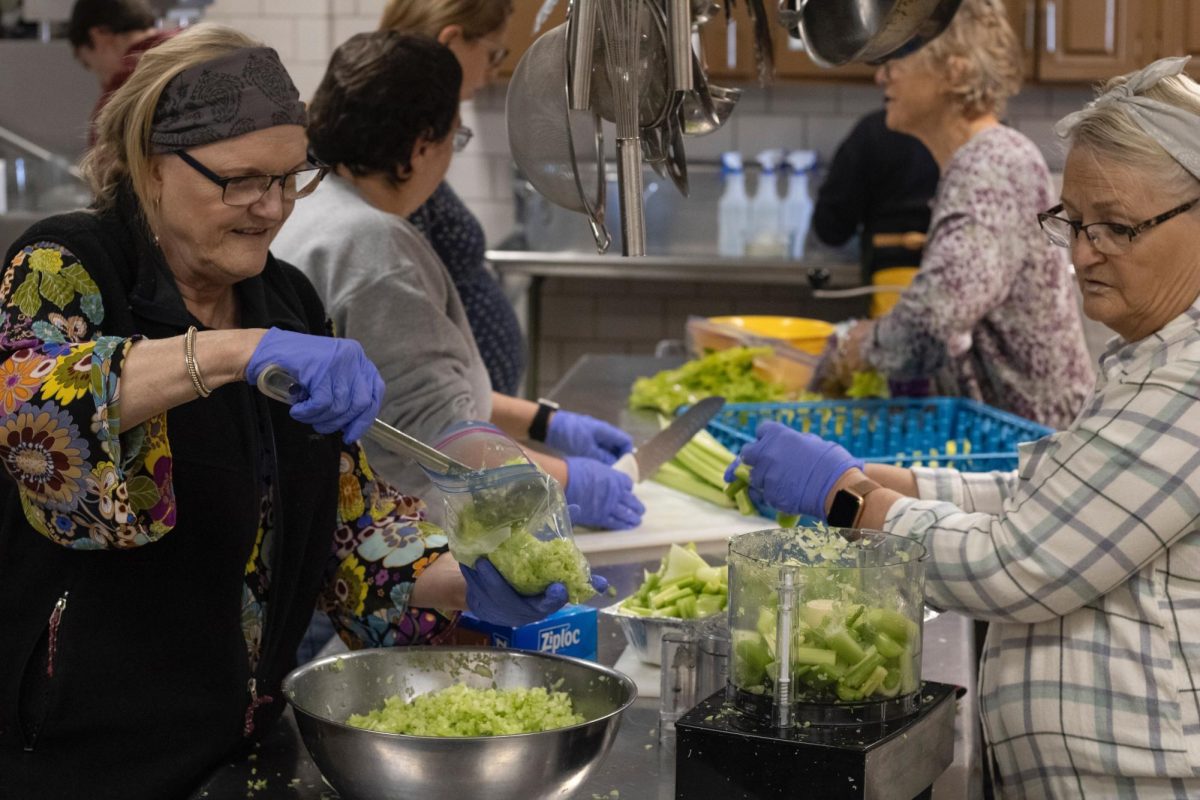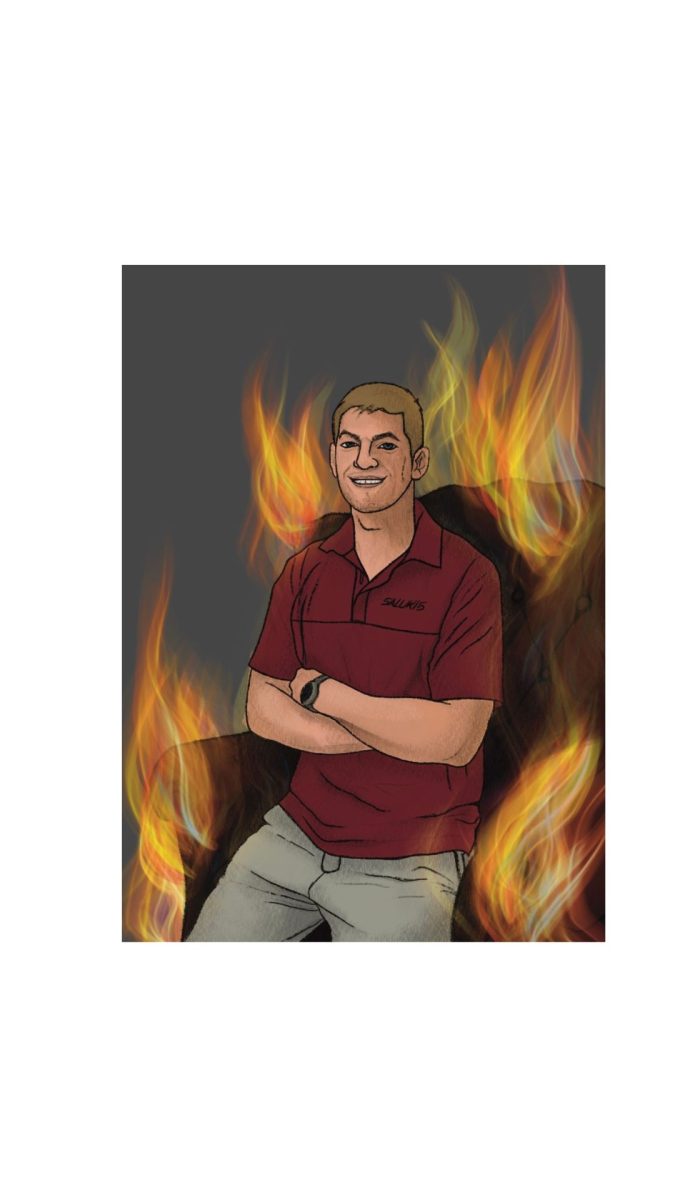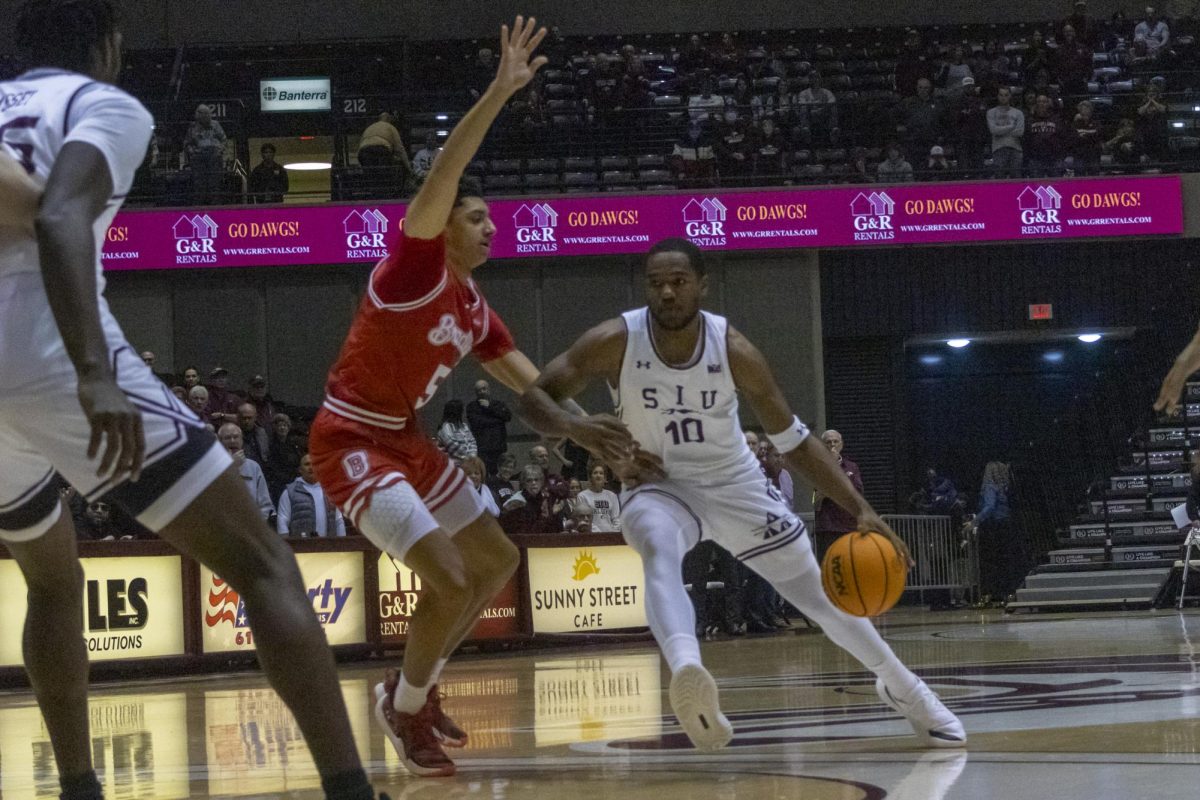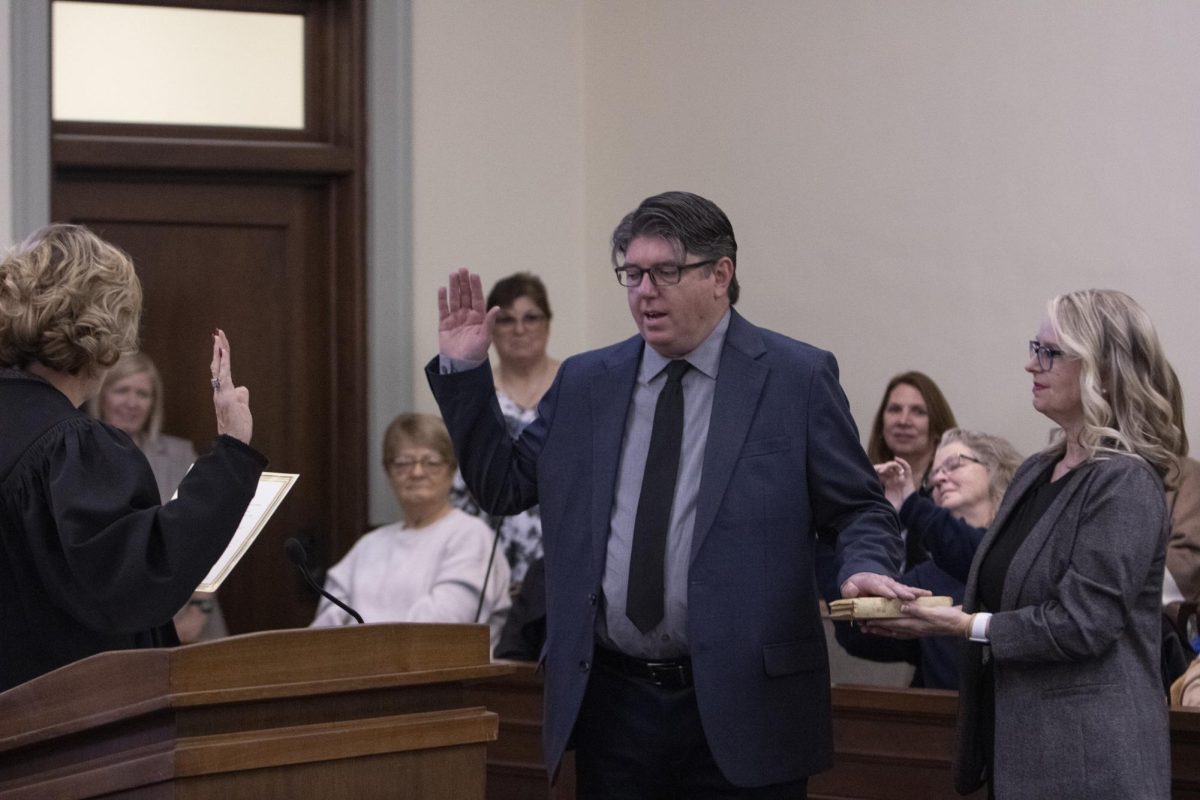Trigger warning: This story contains content related to suicide and mental health challenges.
Outside of the newsroom, Daily Egyptian Photographer Jason Isele has been working to promote mental health awareness one wristband at a time.
Advertisement
“I am doing it for a childhood bestie of mine, Dylan Buckner, who died by suicide just seven days into 2021,” Isele said. “We [friends and family] weren’t sure how else to honor him except as soldiers for change, so one way I’m doing that is passing out some of these wristbands to SIU athletic teams.”
Dylan Buckner was a high school senior at the time of his death. His foundation’s page describes him as “blessed with numerous friends, outstanding academic achievements and remarkable athletic talent as the quarterback of the football team.”
Various wristbands have been designed in his memory. They consist of messages such as “Buck’s Buddies,” “Loyalty Over Royalty” and “We Miss and Love You Dylan.” Isele has designed ones that read “SIU for DB7” and “Team Dylan Buckner.” He has passed out these wristbands to athletic teams at Southern Illinois University, including football, baseball, softball, men’s and women’s basketball, women’s volleyball and the spirit teams.
Advertisement*
“This initiative means a lot to him [Jason] and we wanted to do our part in helping spread awareness,” Head Coach of Saluki Baseball Lance Rhodes said. “Many of our players and coaches know individuals who have suffered with mental health issues and we just want to make sure we let them know that it is alright and there are people who want and are willing to help them throughout those struggles.”
Isele’s campaign began in early 2022. In March and April alone that year, five student-athletes nationwide died by suicide.
“One night, it was May 2022, when I was at a baseball game watching it with a few SIU athlete friends of mine, we were talking about the mental health crisis, and I let them know that I was going to email those coaches about the possibility of a mental health awareness game during their seasons,” he said. “And that’s when they all started discussing Rally Around the Pound.”
Rally Around the Pound was a campaign the SIU athletic department did to support mental and behavioral health initiatives. According to its website, Rally Around the Pound brought “speakers, outreach, awareness, and support to our region and the campus.”
Isele said, “It went pretty well the first year and I sent John Ihrig, the head of Saluki Sports Properties, some ideas for year number two, and that was when I found out it was forced offline due to a partner who helped put it together going down a different road.”
Isele then came up with a new plan to increase mental health awareness.
“I looked at my remaining bracelets of these various designs one night and I was like, ‘Wait a minute, they could represent Dylan Buckner,’” he said. “So then I brought it to the coaches’ attentions one by one, most of them face to face. And then they agreed with that, and I brought them in one team [at a time].”
Isele credited Women’s Volleyball Trainer Samantha Schiess for helping give him one of the openings needed to pass out bracelets.
Schiess said, “I did a very, very small, tiny part. Jason just approached me after one of our matches in the fall, and asked if it’d be okay to pass out the bracelets to the girls, and so I just put him in contact with one of our team captains, and she kind of took it from there. So my part was really small. Mostly it was just connecting him with the right athletes from our team to kind of disseminate stuff from there.”
She said it is important to have discussions about mental health, especially in athletic contexts, so they can define what the term truly means.
“Right now we’re kind of working through I think…what’s mental toughness versus what’s mental health,” she said. “And I think defining those two things is hard, and I think that’s why it’s important that we keep talking about it, because for everyone it’s going to look a little different, but understanding, like, what is ‘I just needed to be a little bit tougher today’ versus what is ‘I need to check in with myself on what my mental health is.’ Those are two different things…We can’t make those definitions without having these tough conversations.”
To support her athletes, Schiess works to build trust.
“I think the biggest thing for me is having those relationships beforehand, so I really try hard to create open communication,” she said. “I have an open door policy with all my student-athletes. If they ever need anything, even if it’s not like a physical injury, my door is always open for conversation.”
She said she works hard to get to know them outside of volleyball as well.
“That way they feel more comfortable sharing more sensitive or difficult topics with me when those moments may arise,” she said. “So I really think a lot of it is doing that work beforehand, and…as athletic trainers, [we] get a really cool opportunity to be that first person that someone and especially the athletes will go to when they’re struggling because we really do see them almost every day, and so we get to know them very well.
Schiess said it is “a cool experience to be able to support someone that way.”
“Whereas a lot of other health care professionals, you may only see them when you really need them, [so] it’s kind of cool that we can build those relationships and help create that plan of communication,” she said.
Schiess said the athletic department has a counselor, Austin Alvarez, who is trained to work with athletes specifically. He is a staff member of Counseling and Psychological Services (CAPS) which is available to all SIU students. Appointments can be made by calling 618-453-5371.
“My primary responsibilities are doing individual counseling with the student-athletes,” Alvarez said. “They can reach out to me directly, or they may be referred by a coach or an athletic trainer. Those people may hit me up and say, ‘Hey, I’m worried about this student.’ And then I’ll reach out to that student at that point.”
He said he loves that Isele has taken the initiative to spread awareness, and that “having a story behind mental health can be very powerful.”
“If you haven’t been through something, it can kind of seem like this abstract concept,” he said. “Like, ‘Oh, depression or anxiety, I don’t know what that’s like. It couldn’t happen to me. It’s just like something I see on TV or on social media.’ But when you’re able to hear stories about people who kind of went through stuff like that, I think it can make it more real and kind of, like kickstart to things like taking care of [ourselves].”
Alvarez said wristbands are “pretty cool.”
“Having this cool little symbolic thing can kind of help market it and maybe it strikes up a conversation with someone about mental health that never would have happened without the wristband,” he said.
He said he also thinks they create “a sense of community.”
“That can be such a powerful thing for people,” Alvarez said. “I couldn’t count the number of times when I’ve been talking to someone and they feel isolated because of their mental health.”
Additionally, he recognized the relatability speaking out as a student can bring.
“I can go and give a PowerPoint presentation…But I mean, at the end of the day, I’m a university employee. I think it just lands differently when it’s a peer,” he said. “…I think that can have a different impact than, like, a coach or me or whatever other staff is trying to talk to the students about this type of stuff.”
One of the things Alvarez has been doing to support the mental health needs of student-athletes is offering training for the athletic staff.
“For example, the big one we had last semester was Mental Health First Aid training,” he said. “What that was, was to help different staff. I had a couple of coaches, I had some athletic trainers, I had academic counselors. They all came in and I gave a three day training on what types of signs to look for for mental health difficulties, how to respond to different crises, how people can get students in contact with different resources, things like that.”
Zoe Belcher is a student at SIU and former member of the women’s basketball team. She said she started wearing the wristbands during her time on the team to support Jason and “the cause as a whole.”
“I know a lot of people shy away from mental health when it comes to athletes or even young adults, so it was just to help support and spread awareness,” she said. “It feels good to spread his name…and when I wear it and people ask about it, I get to tell them what I know of his [Dylan’s] story, and it’s like the domino effect.”
Despite Dylan being from Chicago, Isele decided to bring this campaign to Southern Illinois because “it’s important to discuss [this topic] everywhere you go.”
“Mental health and suicide doesn’t just affect my hometown or universities like James Madison University,” Isele said. “It’s everywhere. It affects all people. We all have mental health. One in five people struggle with mental health, and one in 10 college students contemplate suicide.”
Isele said having conversations about mental health within the context of athletic environments is crucial to dismantling negative stereotypes.
“It is thought that the sports that people play are central to their identity and it’s falsely claimed that their athletic performance is a reflection of their overall worth as people, which is not really true,” he said.
Kayleb Wagner is a member of the football team. He shared his own experiences as a student-athlete.
“Being an athlete is our job. Some people don’t understand that that’s a big responsibility, a big task,” he said. “One moment the whole world could love you and the next the whole world hates you. It’s hard to deal with that mentally.”
While Wagner did not have a personal connection to Dylan, he joined his teammates in wearing wristbands to show support for the cause.
“It feels good…[to] be a part of something greater than football or greater than yourself. It’s always a great thing to just help out the community in situations and stuff like that.”
He said the campaign has motivated his teammates to take further action in spreading awareness.
“It inspired one of our guys to make some mindset shirts,” he said.
Belcher and Wagner both discussed how time-consuming athletics and college life in general can be, and emphasized the importance of taking time for yourself.
“It’s not really a lot of time that you get for yourself…If I need a day off, I have to express that; take that mental day for myself, and just kind of regroup with myself,” Belcher said. “And even now it’s kind of hard still because of classes and extracurricular activities, whatever they may be. You always have to remember to just take a step back and think of yourself first.”
Wagner said, “You have to take days where you make time for things you want, things you like. Like…[listening] to certain music, anything like that, because at a point in time, a lot of it can become overwhelming too fast…No matter what’s going on, you have to make time, a week or a day or something like that, where you can just relax and do something you’d like to do or just chill and have a mental reset.”
Looking forward, Isele and his supporters have high hopes for the future of this campaign.
“Our hopes are that this stigma around mental health is finally eradicated before the birth of the next generation or the one after that; that we’re the generation that finally slays the stigma around mental health,” he said. “And no matter if that goal is achieved one day, we’ll always be wearing these bracelets, and whether or not The Dylan Buckner Foundation lasts forever, us friends and family [and supporters] will always be Dylan Buckner’s army.”
Isele wants to leave readers with one last message:
“You’re never truly alone in the world, you are loved, and asking for help is not a sign of weakness. And if you do ask somebody for help, you will not be burdening them, but rather making them glad that you realize that they’re there for you.”
(Editor’s note: If you or someone you know is contemplating self-harm or is struggling, please call or text the National Suicide Prevention Lifeline at 988.)
Staff reporter Carly Gist can be reached at [email protected]
Advertisement



